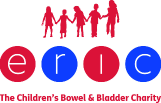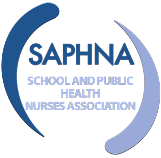PCF RESOURCES
Updated 2024 Integrated paediatric continence services Guide to significantly improve children’s lives and save NHS costs
Read the updated Children’s Continence Commissioning Guide 2024.
The Paediatric Continence Forum has launched its updated Guide (2024) on how to commission and run integrated, nurse-led, community-based paediatric continence services. These are clinically effective, improve the lives of children and their families and generate significant cost savings for the NHS.
An examination of paediatric continence services across the UK (2021)
The Paediatric Continence Forum conducts a Freedom of Information project every three years to assess the state of paediatric continence service provision across the UK. The latest project, undertaken in 2021, was delayed a year in recognition of unprecedented demand on health systems due to the Covid-19 pandemic.
As a result of the report’s findings, the PCF continues to make the following recommendations to policymakers:
- Every child and young person in the UK should have access to a well-resourced, integrated, community-based, nurse-led paediatric bladder and bowel service.
- As provision of appropriate clinical services can produce cost savings, reduce clinical pressures in other parts of health care, and improve outcomes, statutory bodies that provide for health promotion and clinical work should work collaboratively to ensure that integrated children’s bladder and bowel services are available in every community for every child or young person that has a clinical need for them. They should recognise that there is a risk in terms of clinical governance to fail to provide these services and it is their responsibility to work together to provide them.
- Information about the local children’s bladder and bowel services should be readily available in all statutory settings (health, education, and social care). It should be clear who can refer children and young people to these services and how families and young people can contact referrers. Services should also be publicised, while ensuring that all children, young people and their families know how to access them.
Continence Issues and Safeguarding – NSPCC & PCF best practice to help recognise and respond to continence issues in children and young people
In February 2021, the PCF and NSPCC published new guidance to help recognise and respond to continence issues that may affect children and young people. This information includes:
- the causes of continence issues
- the impact these can have on a child’s wellbeing
what to do when challenges related to continence may indicate a safeguarding or child protection concern - how best to support children and young people with continence issues by developing or making changes to care plans
- who should be providing intimate care, including information about vetting and barring checks, privacy and boundaries
- what relevant guidance across the UK says.
OTHER RESOURCES
Guidance for the provision of continence containment products to children and young people
The PCF is pleased to fully endorse this document.

ERIC website: http://www.eric.org.uk/

SAPHNA website: https://saphna.co/

Bladder & Bowel UK website: www.bbuk.org.uk
